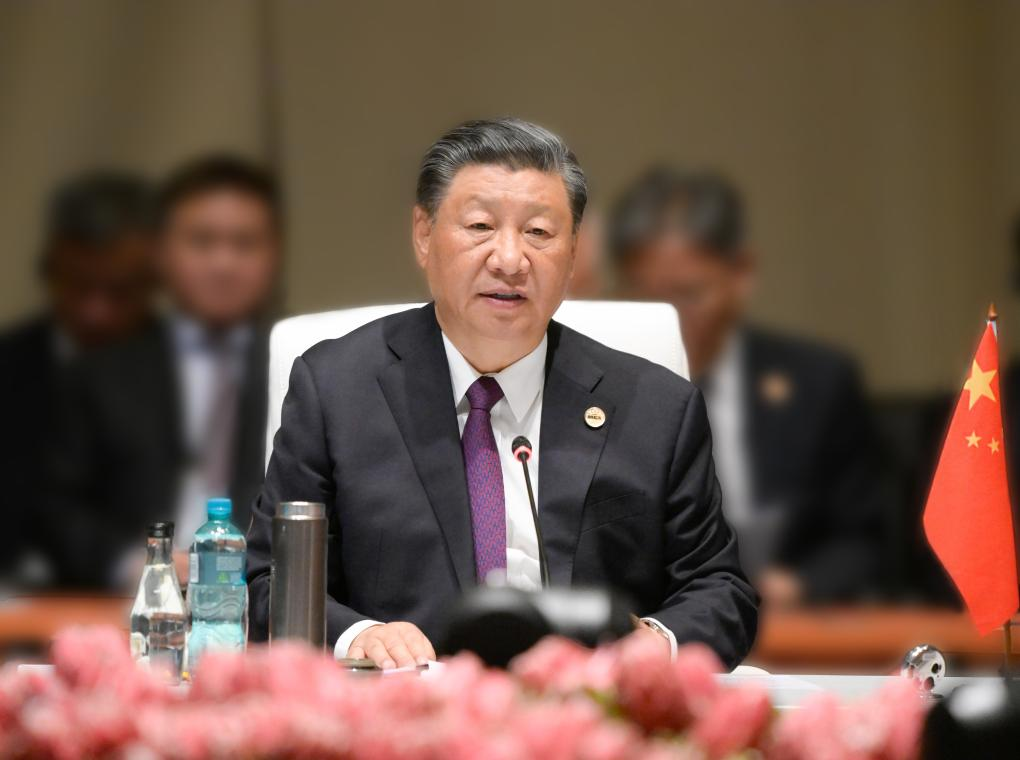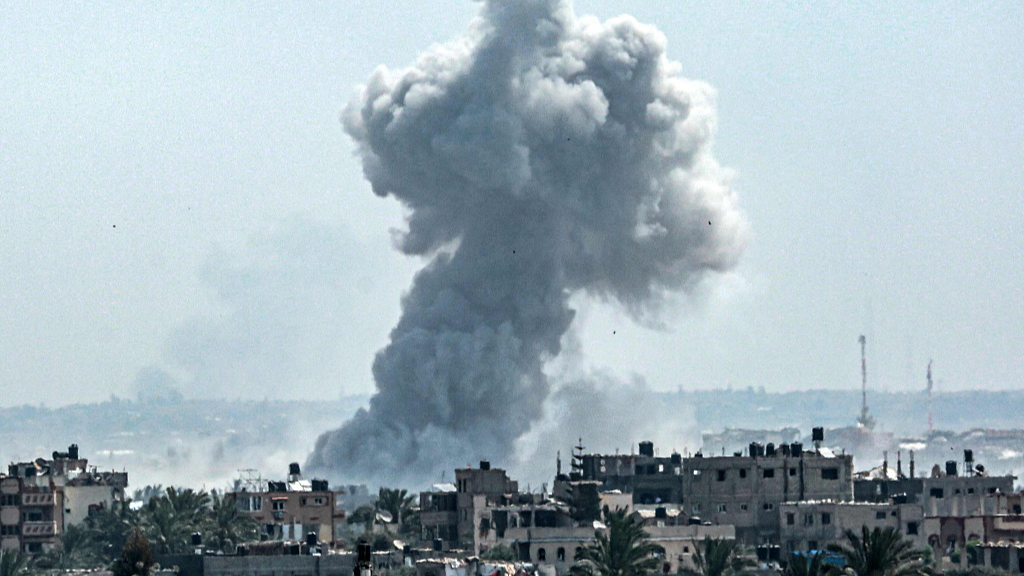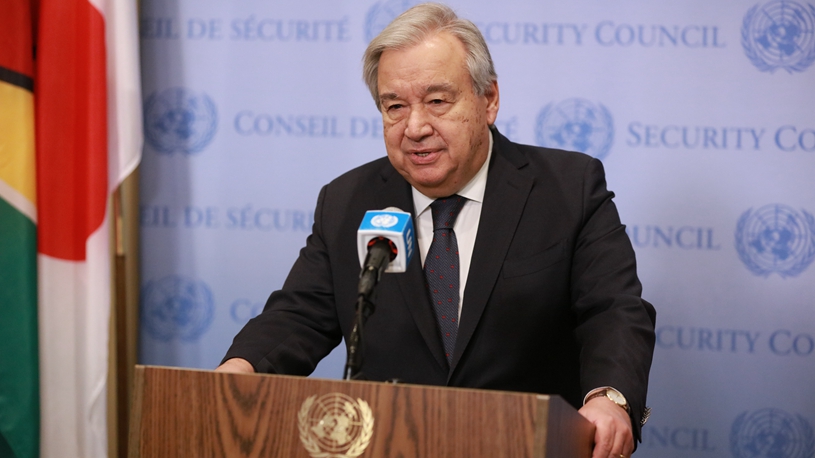JOHANNESBURG, Aug. 23 (Xinhua) — Chinese President Xi Jinping said here on Wednesday that the BRICS is an important force in shaping the international landscape.
BRICS countries choose their development paths independently, jointly defend their right to development, and march in tandem toward modernization, which represents the direction of the advancement of human society, and will profoundly impact the development process of the world, Xi said in a speech delivered at the 15th BRICS Summit.
The track record of the BRICS shows that the members have consistently acted on the BRICS spirit of openness, inclusiveness and win-win cooperation, and taken BRICS cooperation to new heights in support of the five countries’ development, he said.
BRICS nations, Xi said, have upheld fairness and justice in international affairs, stood up for what is right on major international and regional issues, and enhanced the voice and influence of emerging markets and developing countries.
BRICS countries invariably advocate and practice independent foreign policies, said Xi, adding that they always address major international issues based on their merits, making fair remarks and taking fair actions.
BRICS nations do not barter away principles, succumb to external pressure, or act as vassals of others, he said, adding that they share extensive consensus and common goals.
No matter how the international situation changes, the BRICS’s commitment to cooperation since the very beginning and the common aspiration will not change, he added.
Xi also noted that BRICS countries gather at a crucial time to build on their past achievements and open up a new future for BRICS cooperation.
He called on all members to navigate the trend of the times and stay in the forefront.
BRICS members should always bear in mind their founding purpose of strengthening themselves through unity, enhance cooperation across the board, and build a high-quality partnership, Xi said.
All BRICS countries, he added, should help reform global governance to make it more just and equitable, and bring to the world more certainty, stability and positive energy.
Xi called for efforts to deepen business and financial cooperation among BRICS countries to boost economic growth.
Xi said the world economic recovery remains shaky, and challenges for developing countries are even more formidable, hampering their efforts to realize the Sustainable Development Goals.
“Development is an inalienable right of all countries, not a privilege reserved for a few,” Xi said.
He called on BRICS countries to be fellow companions on the journey of development and revitalization, and oppose decoupling and supply chains disruption as well as economic coercion.
BRICS countries should focus on practical cooperation, particularly in such fields as digital economy, green development, and supply chain, and bolster economic, trade and financial exchanges, Xi said.
He added that China will set up a China-BRICS Science and Innovation Incubation Park for the New Era to support the deployment of innovation results.
Xi called on BRICS countries to expand political and security cooperation to uphold peace and tranquility.
“The Cold War mentality is still haunting our world, and the geopolitical situation is getting tense,” Xi said.
The BRICS countries should keep to the direction of peaceful development, and consolidate the BRICS strategic partnership, Xi said, adding that members should make good use of the BRICS Foreign Ministers’ Meeting, the Meeting of High Representatives on National Security and other mechanisms, support each other on issues concerning their respective core interests, and enhance coordination on major international and regional issues.
“We need to tender good offices on hotspot issues, pushing for political settlement and lowering the temperature,” he said.
Noting that artificial intelligence (AI) is a new area of development, which not only can bring huge development dividends, but also contains risks and challenges, Xi said the BRICS countries have agreed to launch the AI Study Group at an early date.
“We need to enable the study group to play its full role, further expand cooperation on AI, and step up information exchanges and technological cooperation,” he said.
The BRICS members should also jointly fend off risks, promote the establishment of an international mechanism for universal participation, and develop AI governance frameworks and standards with broad-based consensus, so as to continuously make AI technologies more secure, reliable, controllable and equitable, he added.
Also in his speech, Xi said human history will not end in one civilization or one system.
“There are many civilizations and development paths in the world, and this is how the world should be,” he said.
“We should increase people-to-people exchanges and promote mutual learning between civilizations,” he added.
The Chinese leader said BRICS countries need to champion the spirit of inclusiveness, advocate peaceful coexistence and harmony between civilizations, and promote respect of all countries in independently choosing their modernization paths.
“We need to make good use of such mechanisms as the BRICS seminar on governance, the BRICS forum on people-to-people and cultural exchanges, and the Women Innovation Contest to deepen people-to-people exchanges and strengthen the bond between our peoples,” he noted.
Xi also said that China would like to propose that BRICS countries expand cooperation on education, enhance the role of the BRICS alliance for vocational education, explore and set up a cooperation mechanism on digital education, and foster a paradigm of all-round cooperation on education.
In addition, he also urged BRICS countries to strengthen exchanges on traditional cultures and promote the renewal of fine traditional cultures.
Xi urged BRICS countries to uphold fairness and justice, and improve global governance.
Xi said strengthening global governance is the right choice if the international community intends to share development opportunities and tackle global challenges.
International rules must be written and upheld jointly by all countries based on the purposes and principles of the UN Charter, rather than dictated by those with the strongest muscles or the loudest voice, he said.
Xi also said ganging up to form exclusive groups and packaging their own rules as international norms are even more unacceptable.
BRICS countries, Xi said, should practice true multilateralism, uphold the UN-centered international system, support and strengthen the WTO-centered multilateral trading system, and reject the attempt to create small circles or exclusive blocs.
“We need to fully leverage the role of the New Development Bank, push forward reform of the international financial and monetary systems, and increase the representation and voice of developing countries,” he added.
Addressing the summit, South African President Cyril Ramaphosa expressed his concerns that global financial and payment systems are increasingly being used as instruments of geopolitical contestation.
He also said new realities call for a fundamental reform of the institutions of global governance so that they can be more representative and better able to respond to challenges.
The BRICS group supports the rise of a multipolar world order, and opposes attempts made by some countries to assert their hegemony, Russian President Vladimir Putin said at the summit in a virtual address.
“We are all unanimously in favor of the formation of a multipolar world order that is truly just and based on international law,” the Kremlin reported Putin as saying at the summit.
“We are against any kind of hegemony, exclusivity, which is being promoted by some countries,” Putin said.
Putin noted that the BRICS group is strengthening economic cooperation in such fields as supply chain diversification, de-dollarization and transition to national currencies in mutual settlements.
Putin outlined the importance of enhancing cooperation in other fields such as innovation, and in the creation of safe transport routes.
The future-oriented strategic course of BRICS meets the aspirations of the global majority, Putin said, adding that the BRICS group is tackling some of the most pressing issues on the global and regional agenda.

 News6 days ago
News6 days ago
 Sports4 days ago
Sports4 days ago
 Sports7 days ago
Sports7 days ago
 News6 days ago
News6 days ago
 News6 days ago
News6 days ago
 News4 days ago
News4 days ago
 News4 days ago
News4 days ago
 Sports4 days ago
Sports4 days ago


















